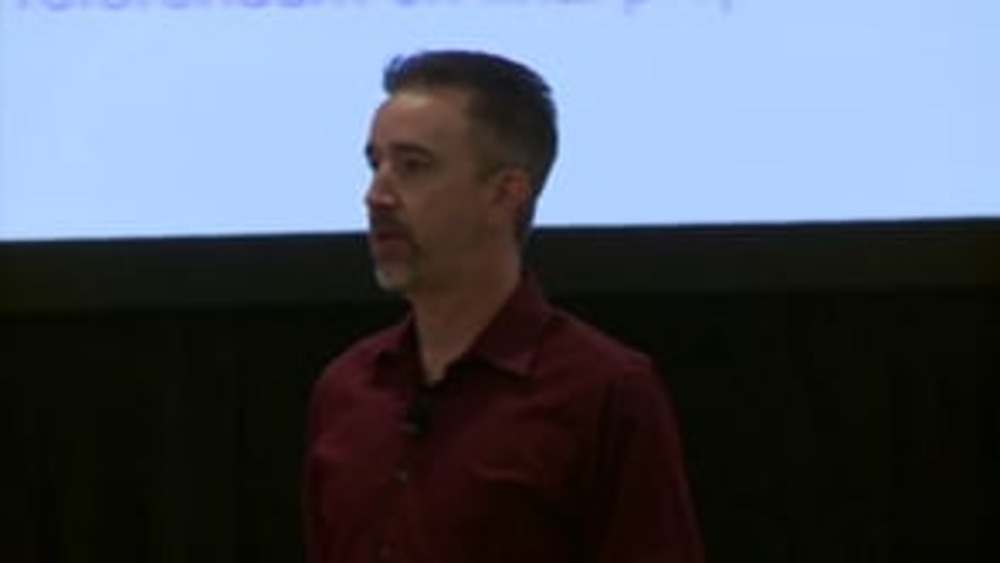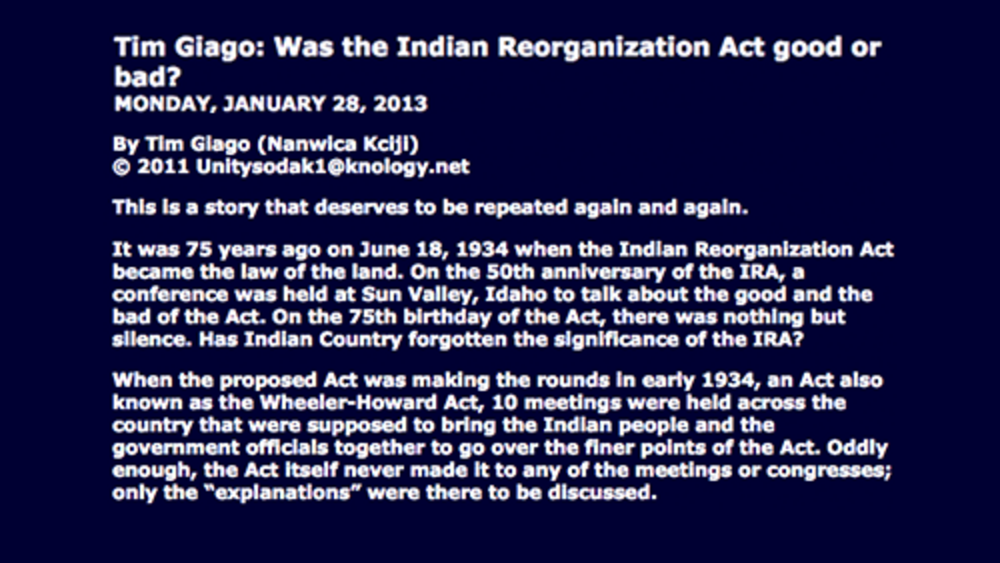Indigenous Governance Database
John Collier
Thumbnail

Ian Record: Setting the Focus and Providing the Context: Critical Constitutional Reform Tasks (Presentation Highlight)
In this highlight from the presentation "The Process of Constitutional Reform: The Challenge of Citizen Engagement," NNI's Ian Record lays out two critical overarching tasks that those charged with leading a nation's constitutional reform effort must undertake.
Image

Tim Giago: Was the Indian Reorganization Act good or bad?
It was 75 years ago on June 18, 1934 when the Indian Reorganization Act became the law of the land. On the 50th anniversary of the IRA, a conference was held at Sun Valley, Idaho to talk about the good and the bad of the Act. On the 75th birthday of the Act, there was nothing but silence. Has…
